
Discover the Charm of Pirae, Tahiti's Hidden Gem
Pirae is a picturesque neighborhood nestled on the eastern coast of Tahiti, French Polynesia. It offers a serene escape from the bustling city life, yet is conveniently close to Papeete, the island's vibrant capital. Pirae perfectly balances natural beauty with cultural richness, making it an ideal destination for tourists seeking an authentic Tahitian experience. Start your journey by exploring the lush green landscapes that surround Pirae. The neighborhood is home to several beautiful parks and gardens, including the exquisite Harrison Smith Botanical Garden. Here, you can stroll through tropical flora and fauna, capturing the essence of Tahiti's natural wonders. The nearby Mount Aorai offers challenging hiking trails with breathtaking panoramic views of the island and its turquoise waters. Pirae is also a cultural treasure trove. Visit the local markets to experience the colorful array of fresh produce, handicrafts, and traditional Polynesian artifacts. The neighborhood is dotted with historic landmarks and charming churches that reflect the rich heritage of the region. Don't miss out on the opportunity to indulge in Tahitian cuisine at local eateries, where you can savor dishes made from fresh seafood and tropical fruits. For those who love the ocean, Pirae's coastline does not disappoint. The clear, warm waters are perfect for swimming, snorkeling, and kayaking. You can also take a short drive to nearby beaches for a day of sunbathing and relaxation. The friendly locals are always eager to share their knowledge and stories, adding a personal touch to your visit. Whether you're an adventure seeker or someone looking to unwind, Pirae offers something for everyone.
Local tips in Pirae
- Visit the Harrison Smith Botanical Garden early in the morning to avoid the heat and crowds.
- Carry cash for purchases at local markets as some vendors may not accept credit cards.
- Wear comfortable hiking shoes if planning to trek Mount Aorai; the trails can be steep and slippery.
- Try the local dish, poisson cru, a refreshing raw fish salad marinated in lime and coconut milk.
- Respect local customs and always ask for permission before taking photos of people.
Discover the Charm of Pirae, Tahiti's Hidden Gem
Pirae is a picturesque neighborhood nestled on the eastern coast of Tahiti, French Polynesia. It offers a serene escape from the bustling city life, yet is conveniently close to Papeete, the island's vibrant capital. Pirae perfectly balances natural beauty with cultural richness, making it an ideal destination for tourists seeking an authentic Tahitian experience. Start your journey by exploring the lush green landscapes that surround Pirae. The neighborhood is home to several beautiful parks and gardens, including the exquisite Harrison Smith Botanical Garden. Here, you can stroll through tropical flora and fauna, capturing the essence of Tahiti's natural wonders. The nearby Mount Aorai offers challenging hiking trails with breathtaking panoramic views of the island and its turquoise waters. Pirae is also a cultural treasure trove. Visit the local markets to experience the colorful array of fresh produce, handicrafts, and traditional Polynesian artifacts. The neighborhood is dotted with historic landmarks and charming churches that reflect the rich heritage of the region. Don't miss out on the opportunity to indulge in Tahitian cuisine at local eateries, where you can savor dishes made from fresh seafood and tropical fruits. For those who love the ocean, Pirae's coastline does not disappoint. The clear, warm waters are perfect for swimming, snorkeling, and kayaking. You can also take a short drive to nearby beaches for a day of sunbathing and relaxation. The friendly locals are always eager to share their knowledge and stories, adding a personal touch to your visit. Whether you're an adventure seeker or someone looking to unwind, Pirae offers something for everyone.
Iconic landmarks you can’t miss
Place Vai'ete
Explore the lush beauty and vibrant culture of Place Vai'ete, a serene park in Papeete that offers breathtaking views and local experiences.
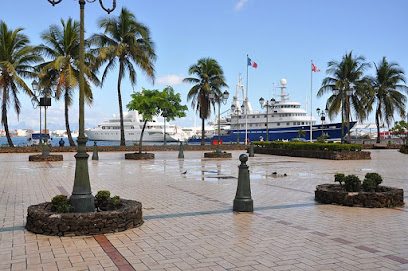
O Belvédère
Discover O Belvédère in Pira'e, where exquisite French cuisine meets breathtaking views of French Polynesia's stunning landscapes.
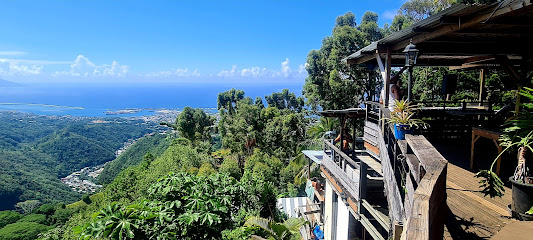
Musée de la Perle Robert Wan
Explore the exquisite world of pearls at Musée de la Perle Robert Wan in Papeete, where culture, beauty, and craftsmanship come together.
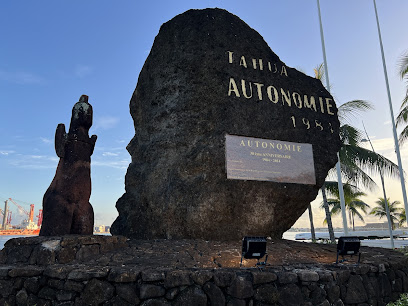
Belvédère du Tahara'a
Experience the mesmerizing beauty of Tahiti from the stunning heights of Belvédère du Tahara'a, the perfect observation deck for breathtaking views.
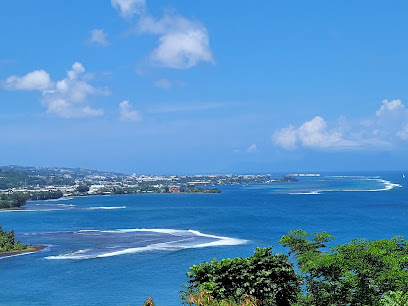
James Norman Hall Museum
Explore the rich literary heritage of French Polynesia at the James Norman Hall Museum, dedicated to the life of the iconic author.
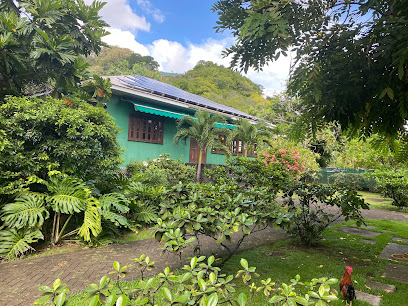
Pater Te Hono Nui Stadium
Experience the spirit of French Polynesia at Pater Te Hono Nui Stadium, where sports and culture unite in a vibrant community atmosphere.
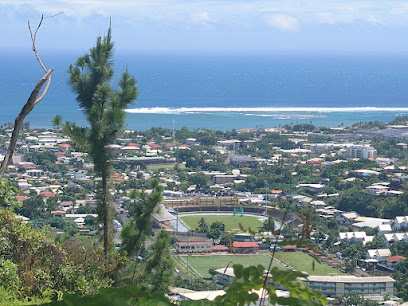
Tomb of King Pōmare V
Explore the Tomb of King Pōmare V, a serene historical site in Arue, French Polynesia, showcasing the rich heritage of Tahiti's royal legacy.
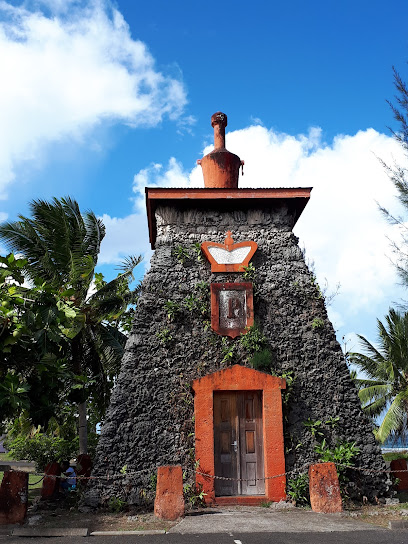
Rainbow Park Tahiti
Experience the tranquil beauty of Rainbow Park Tahiti, a picturesque oasis in Pira'e, perfect for relaxation and nature appreciation.
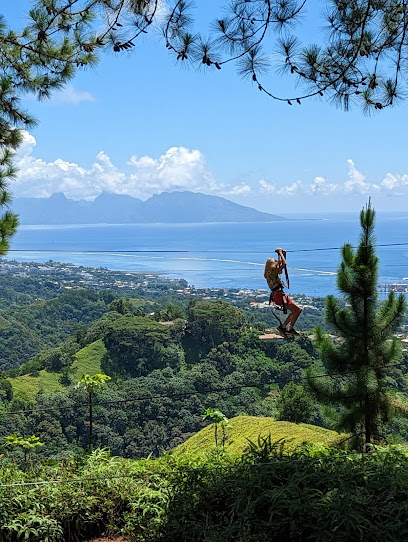
MANUA Exquisite Tahitian Art
Discover the heart of Tahitian culture at MANUA Exquisite Tahitian Art, where every piece tells a story of heritage and creativity.
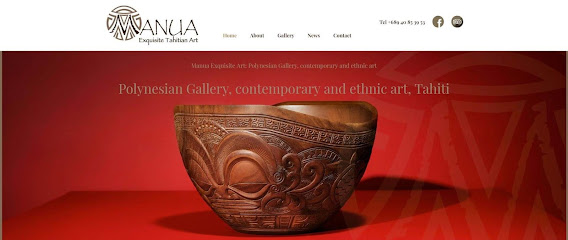
Monument aux Morts pour la France
Explore the Monument aux Morts pour la France in Papeete, a touching tribute to the sacrifices of soldiers and a serene spot for reflection amidst lush gardens.
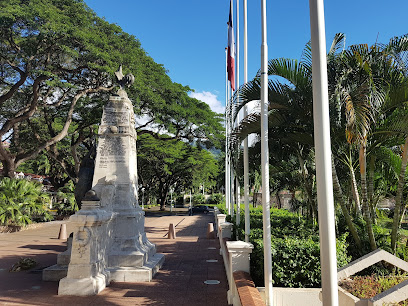
Unmissable attractions to see
Place Vai'ete
Experience Papeete's heart at Place Vai'ete: a waterfront oasis by day, a vibrant cultural hub with food, music, and ocean views by night.
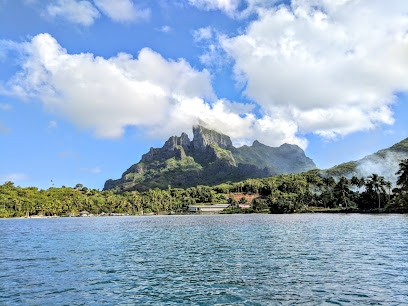
Papeete Catholic Cathedral
Discover Papeete's oldest Catholic church, a vibrant blend of colonial and Polynesian design, and a testament to Tahiti's rich history.
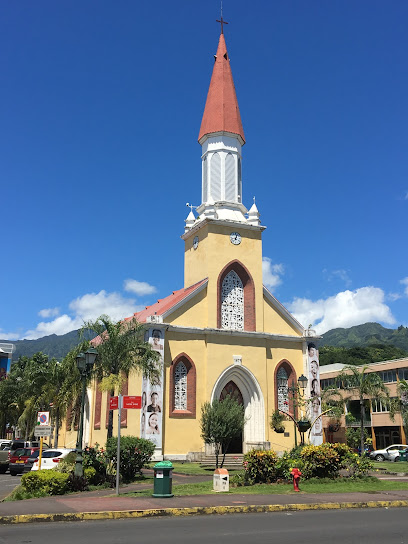
Tahiti Lagoon Paradise
Discover Tahiti's underwater wonders: vibrant marine life, pristine lagoons, and unforgettable snorkeling adventures await!
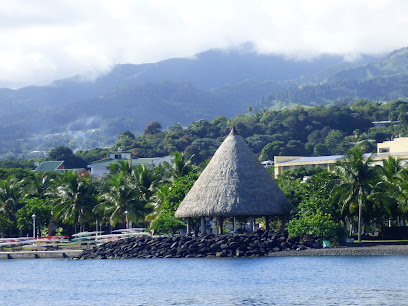
James Norman Hall Museum
Step into the world of James Norman Hall at his Tahitian home, a preserved literary treasure showcasing the life of the 'Mutiny on the Bounty' author.

Tomb of King Pōmare V
Visit the Tomb of King Pōmare V in Arue, Tahiti, a monument to Tahitian royalty and a window into the island's captivating history.
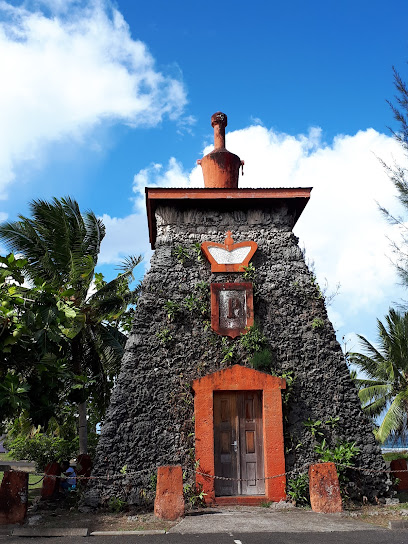
Essential places to dine
O Belvédère
Experience exquisite French cuisine with breathtaking views at O Belvédère in Pīra'e, French Polynesia.
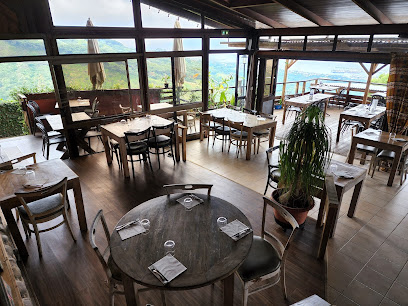
white restaurant tahiti
Experience exquisite Polynesian cuisine at White Restaurant Tahiti, where fresh flavors meet stunning views in Pirae.

Jojo Pizza
Discover the authentic taste of paradise at Jojo Pizza in Pīra'e – where every slice tells a story.

Te Hoa
Experience authentic Chinese flavors at Te Hoa in Pīra'e, where culinary excellence meets local charm amidst stunning French Polynesia.

Restaurant Jeannine
Experience exquisite dining at Restaurant Jeannine in Pirae, where local flavors meet French culinary artistry amidst breathtaking scenery.
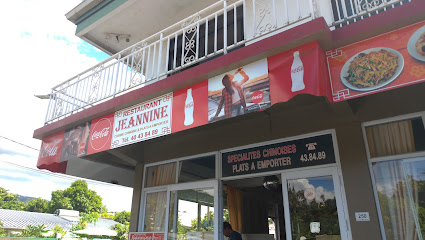
MANAIA Steakhouse & Lounge
Discover the best barbecue experience at MANAIA Steakhouse & Lounge in Pīra'e – where every meal is a celebration of flavor.
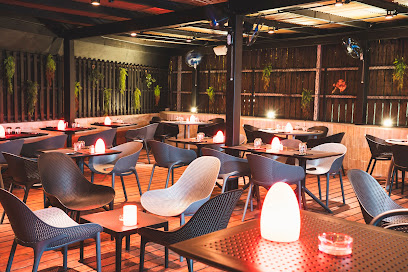
Roulotte chez Léo
Discover authentic Polynesian flavors at Roulotte chez Léo, a vibrant restaurant in Pirae serving delicious local cuisine amidst tropical charm.

Le Matete Chez Kohu
Discover authentic French Polynesian flavors at Le Matete Chez Kohu - where local ingredients meet island hospitality.
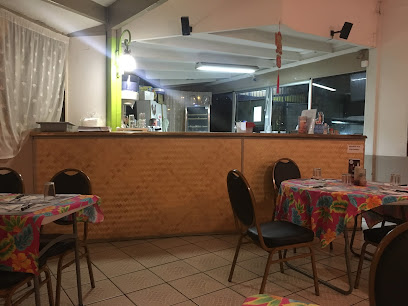
Snack Fantaisie
Discover authentic Chinese flavors at Snack Fantaisie in Pīra'e – a culinary gem set against the stunning backdrop of French Polynesia.

La Fourchette Tahiti
Discover La Fourchette Tahiti: A delightful restaurant offering authentic French Polynesian cuisine amidst stunning tropical surroundings.

Markets, malls and hidden boutiques
Playerz Tahiti
Explore Playerz Tahiti in Pirae for authentic local crafts and souvenirs that capture the spirit of French Polynesia.

Magasin Alene
Explore the vibrant offerings of Magasin Alene, a charming general store in Pīra'e, where local culture meets everyday convenience.

Par-Ci Par-Là
Explore the vibrant linens and unique women's fashion at Par-Ci Par-Là, a charming boutique in the heart of Pīra'e, French Polynesia.

Lollipop Tahiti
Discover a vibrant adult entertainment store in Pirae, Tahiti, offering a unique shopping experience with a welcoming atmosphere and diverse product range.

Fenua Shopping Mamao
Explore the vibrant treasures of Fenua Shopping Mamao, your go-to gift shop for authentic Polynesian souvenirs in Papeete, French Polynesia.
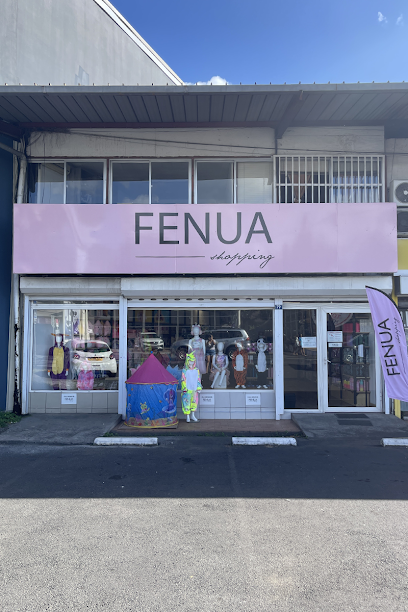
Madame Soleil
Explore unique fashion accessories at Madame Soleil, where Polynesian artistry meets modern style, making it a must-visit boutique in Papeete.
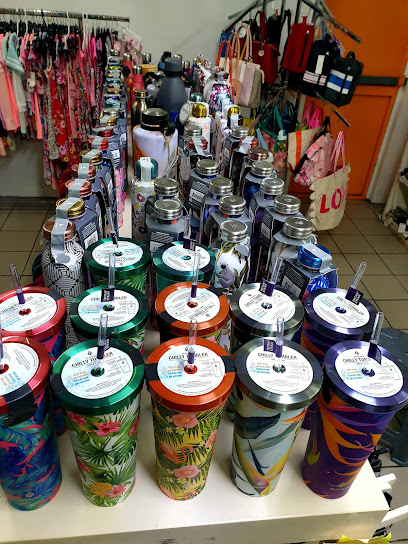
TMI
Discover unique souvenirs and handcrafted gifts at TMI in Pirae, showcasing the vibrant culture of French Polynesia.

Fenua Shopping
Explore the vibrant world of local crafts and unique treasures at Fenua Shopping in Papeete, French Polynesia.
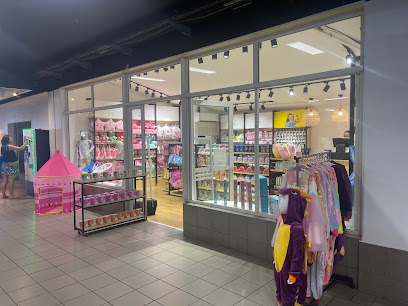
Vanaa Import
Discover essential pet supplies, convenient car rentals, and local accessories at Vanaa Import in Pīra'e, French Polynesia.

Fenua Shopping Vaima
Explore Fenua Shopping Vaima for unique Tahitian gifts and souvenirs that capture the essence of French Polynesia's vibrant culture.
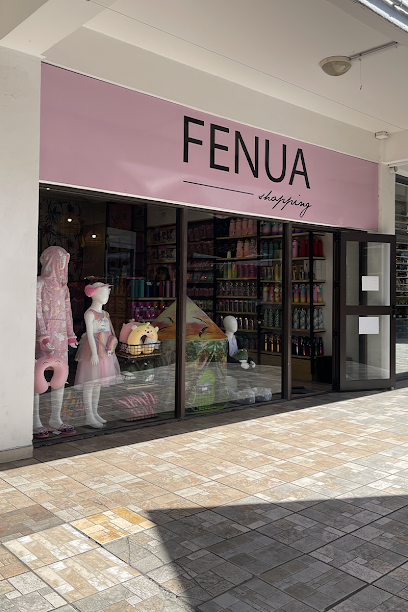
Essential bars & hidden hideouts
Bora Bora lounge
Experience the tropical charm of Bora Bora Lounge in Papeete, where exquisite cocktails and vibrant ambiance await you.
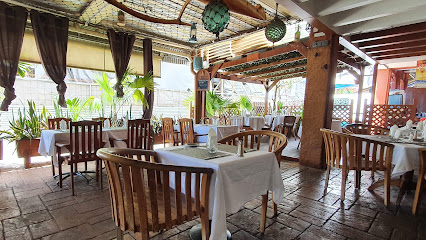
O Belvédère
Experience the exquisite flavors of French cuisine at O Belvédère in Pīra'e, where breathtaking views meet culinary artistry.
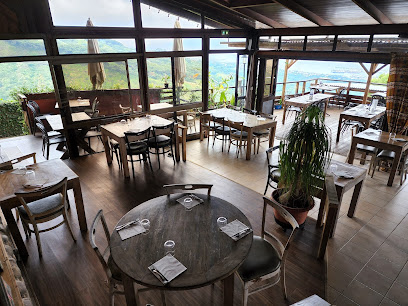
Brasserie Hoa
Discover the vibrant flavors of French Polynesia at Brasserie Hoa, a top brewery and bar in the heart of Papeete, perfect for relaxation and local bites.
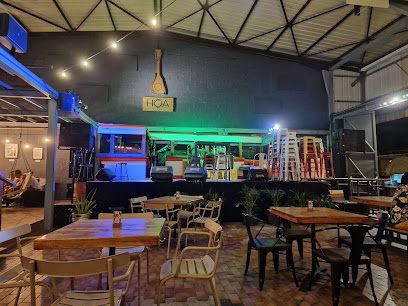
L'ivresse Tahiti
Experience the best of Tahitian wines and local flavors at L'ivresse Tahiti, a charming wine bar in the heart of Papeete.
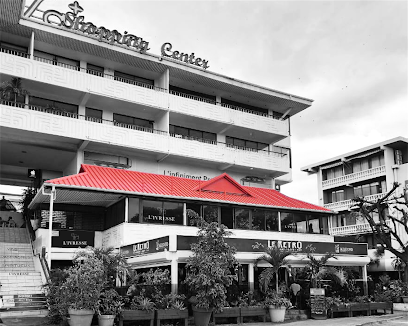
REEFTOP - 360° lounge & bar
Experience breathtaking views and tropical delights at REEFTOP - your premier bar in Papeete, French Polynesia.
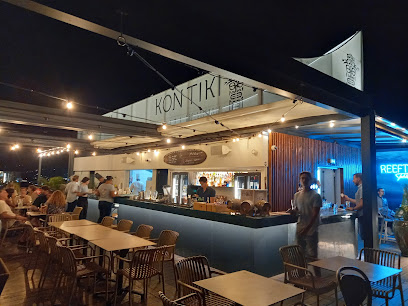
Set Beach Club
Experience the flavors of French Polynesia at Set Beach Club, a beachfront restaurant in Papeete offering exquisite local cuisine and stunning ocean views.
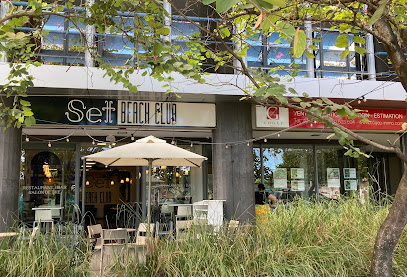
MANAIA Steakhouse & Lounge
Discover the culinary delights of MANAIA Steakhouse & Lounge, where Polynesian barbecue meets exquisite dining in Pirae.
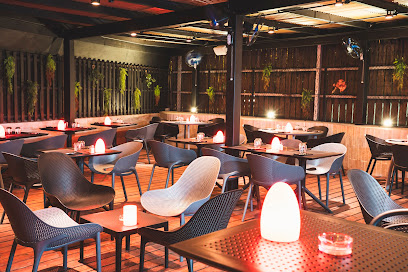
L'After
Experience the vibrant atmosphere of L'After, a premier lounge in Papeete, where tropical cocktails and live music create unforgettable nights.
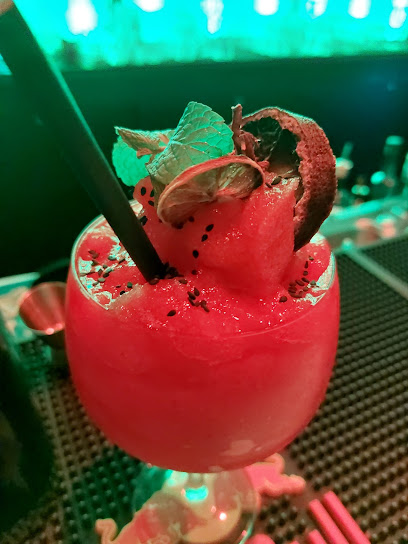
CMIT espace Lagon
Experience the vibrant nightlife of Pīra'e at CMIT espace Lagon, a bar blending local flavors with a lively atmosphere in French Polynesia.
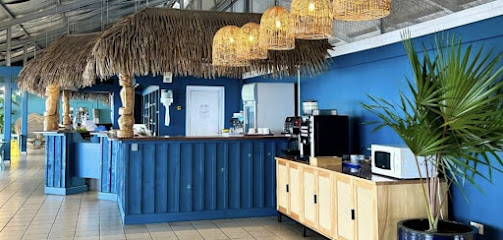
Shape Up Pirae
Discover the vibrant nightlife at Shape Up Pirae, a lively bar in Pirae, French Polynesia, perfect for cocktails and local brews.
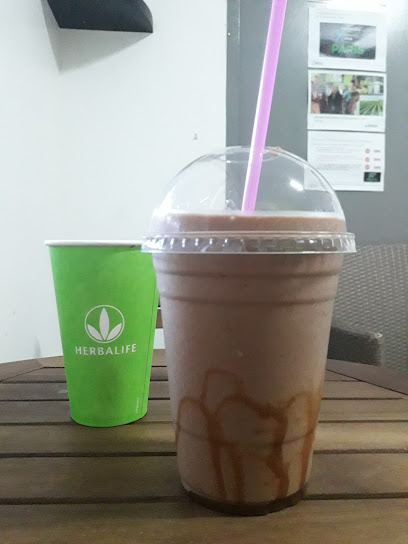
Local Phrases
-
- HelloIa orana
[yah oh-rah-nah] - GoodbyeNana
[nah-nah] - YesE
[ay] - NoAita
[eye-tah] - Please/You're welcomeMauruuru
[mah-roo-roo] - Thank youMauruuru
[mah-roo-roo] - Excuse me/SorryPardon
[par-dohn] - How are you?Aita pea pea?
[eye-tah pay-ah pay-ah] - Fine. And you?Maita'i. Pehea 'oe?
[my-tie. pay-hay-ah oh-ee] - Do you speak English?Ua haere 'oe i te farii 'angarau?
[oo-ah hay-ray oh-ay ee tay fah-ree ahng-ah-rah-oo] - I don't understandAita au mohio
[eye-tah oh moh-hee-oh]
- HelloIa orana
-
- I'd like to see the menu, pleaseAita au e haere i te faanui
[eye-tah oh ay hay-ray ee tay fah-ah-noo-ee] - I don't eat meatAita au e 'ai parau
[eye-tah oh ay eye pah-roh] - Cheers!Manuia!
[mah-noo-ee-ah] - I would like to pay, pleaseAita au e haere i te moni
[eye-tah oh ay hay-ray ee tay moh-nee]
- I'd like to see the menu, pleaseAita au e haere i te faanui
-
- Help!Aita!
[eye-tah] - Go away!Haere i te moana!
[hay-ray ee tay moh-ah-nah] - Call the Police!Haamata i te farereira!
[hah-mah-tah ee tay fah-ray-ray-rah] - Call a doctor!Haamata i te taote!
[hah-mah-tah ee tay tay-oh-tay] - I'm lostUa haere au i te nehenehe
[oo-ah hay-ray oh ee tay nay-hay-nay] - I'm illUa pahaeha au
[oo-ah pah-hah-ay-hah oh]
- Help!Aita!
-
- I'd like to buy...Aita au e 'ai haamata
[eye-tah oh ay eye hah-mah-tah] - I'm just lookingUa haere au i roto i te nehenehe
[oo-ah hay-ray oh ee roh-toh ee tay nay-hay-nay] - How much is it?Eaha te moni?
[ay-ah-hah tay moh-nee] - That's too expensiveRahi roa te moni
[rah-hee roh-ah tay moh-nee] - Can you lower the price?Aita 'oe e faahou roa te moni?
[eye-tah oh-ay ay fah-ah-hoo roh-ah tay moh-nee]
- I'd like to buy...Aita au e 'ai haamata
-
- What time is it?Eaha te haapiti?
[ay-ah-hah tay hah-ah-pee-tee] - It's one o'clockE tahi haapiti
[ay tah-hee hah-ah-pee-tee] - Half past (10)E tahi mea
[ay tah-hee may-ah] - MorningPoipoi
[poh-ee-poh-ee] - AfternoonArepiti
[ah-ray-pee-tee] - EveningAhiahi
[ah-hee-ah-hee] - YesterdayIne
[ee-nay] - TodayAtea
[ah-tay-ah] - TomorrowApo
[ah-poh] - 1Tahi
[tah-hee] - 2Rua
[roo-ah] - 3Toru
[toh-roo] - 4Fa
[fah] - 5Rima
[ree-mah] - 6Ono
[oh-no] - 7Fitu
[fee-too] - 8Varu
[vah-roo] - 9Iva
[ee-vah] - 10Aho
[ah-hoh]
- What time is it?Eaha te haapiti?
-
- Where's a/the...?E hia i te...?
[ay-hee-ah ee tay] - What's the address?E aha te tuhinga?
[ay-ah-hah tay too-hee-ngah] - Can you show me (on the map)?Aita 'oe e 'ohi i au (i roto i te mahere)?
[eye-tah oh-ay ay oh-hee ee oh ay (ee roh-toh ee tay mah-hay-ray)] - When's the next (bus)?I hia i te hopuahi?
[ee hee-ah ee tay hoh-poo-ah-hee] - A ticket (to ....)E hopuahi (e ...)?
[ay hoh-poo-ah-hee (ay ...)]
- Where's a/the...?E hia i te...?
History of Pirae
-
Pirae, located on the northeastern coast of Tahiti, is one of the areas where early Polynesian settlers established their presence. Archaeological evidence suggests that these settlers arrived in Tahiti around 1000 years ago, bringing with them their traditions, language, and agricultural practices. The lush environment of Pirae provided fertile land for farming and fishing, making it a vital part of the island's early economy.
-
The arrival of European explorers in the 18th century marked a significant change for the inhabitants of Pirae. Notably, the ship of Captain James Cook visited Tahiti in 1769, leading to increased European interest in the islands. This contact introduced new goods, ideas, and diseases to the local population, dramatically impacting their way of life and social structures.
-
In the early 19th century, Christian missionaries arrived in Tahiti, including Pirae, to spread their faith and establish schools. The London Missionary Society played a crucial role in this effort, leading to the conversion of many Tahitians. This period saw the introduction of Western education, which was instrumental in changing the cultural landscape of Pirae and the rest of Tahiti.
-
The 19th century was a tumultuous time for Tahiti, including Pirae, as local leaders navigated pressures from both European powers and internal disputes. The establishment of French protectorate status in 1842 led to increased political control from France, with Pirae becoming a focal point for administrative activities. This period shaped the political identity of the region and laid the groundwork for future governance.
-
In recent decades, Pirae has transformed with urban development while still preserving aspects of its rich cultural heritage. The establishment of cultural centers and festivals, such as the Heiva i Tahiti, showcases traditional dance, music, and crafts, allowing residents and visitors alike to engage with Tahitian culture. This revival is part of a broader movement across French Polynesia to celebrate and maintain indigenous traditions in the face of globalization.
Pirae Essentials
-
Pirae is located just a few kilometers east of Papeete, the capital of French Polynesia. To reach Pirae, you can take a taxi or a rideshare service from the international airport, which takes about 15 minutes. Alternatively, local buses (le truck) run regularly from Papeete to Pirae, providing a cost-effective option for travelers. The bus ride offers a glimpse of local life and typically takes around 20-30 minutes, depending on traffic.
-
Pirae is relatively small, making it easy to explore on foot or by bicycle. Bicycles can be rented from local shops. The public bus system (le truck) is an efficient way to navigate the area and connect to nearby neighborhoods. Taxis are also available, but it's advisable to negotiate the fare in advance. Note that there is no train service in Tahiti.
-
Pirae is generally safe for tourists, but standard precautions should be taken. Avoid walking alone late at night, especially in isolated areas. While there are no specific high-crime areas, petty theft can occur in crowded places. Always keep your belongings secure and be aware of your surroundings, particularly in busy markets or tourist spots.
-
In case of an emergency, dial 15 for medical assistance, 17 for police, or 18 for fire services. Local hospitals and clinics are available in Pirae for medical needs. It is highly recommended to have travel insurance that covers emergencies. For minor health issues, pharmacies in the area can provide over-the-counter medications.
-
Fashion: Do wear light, casual clothing suitable for the tropical climate, but avoid overly revealing outfits when visiting religious sites. Religion: Do respect local customs; it's customary to remove shoes before entering homes or temples. Public Transport: Do be polite, offering your seat to the elderly. Don't eat or drink on public buses. Greetings: Do greet locals with a friendly 'Ia Ora Na' (Hello). Eating & Drinking: Do try local specialties such as poisson cru. Don't waste food or refuse offers of hospitality, as it's considered impolite.
-
To experience Pirae like a local, visit the markets for fresh produce and local crafts. Engage with the residents, as they are often friendly and willing to share insights about the area. Don't miss the stunning views from the hills in Pirae; hiking trails offer beautiful panoramas of Tahiti. Attend local cultural events if possible, as they provide a deeper understanding of the Polynesian culture and traditions.
Nearby Cities to Pirae
-
Things To Do in Tahiti
-
Things To Do in Moorea
-
Things To Do in Tetiaroa
-
Things To Do in Huahine
-
Things To Do in Raiatea
-
Things To Do in Bora Bora
-
Things To Do in Maupiti
-
Things To Do in Rangiroa
-
Things To Do in Matavera
-
Things To Do in Muri
-
Things To Do in Ngatangiia
-
Things To Do in Avarua
-
Things To Do in Takitumu
-
Things To Do in Avatiu
-
Things To Do in Nikao






